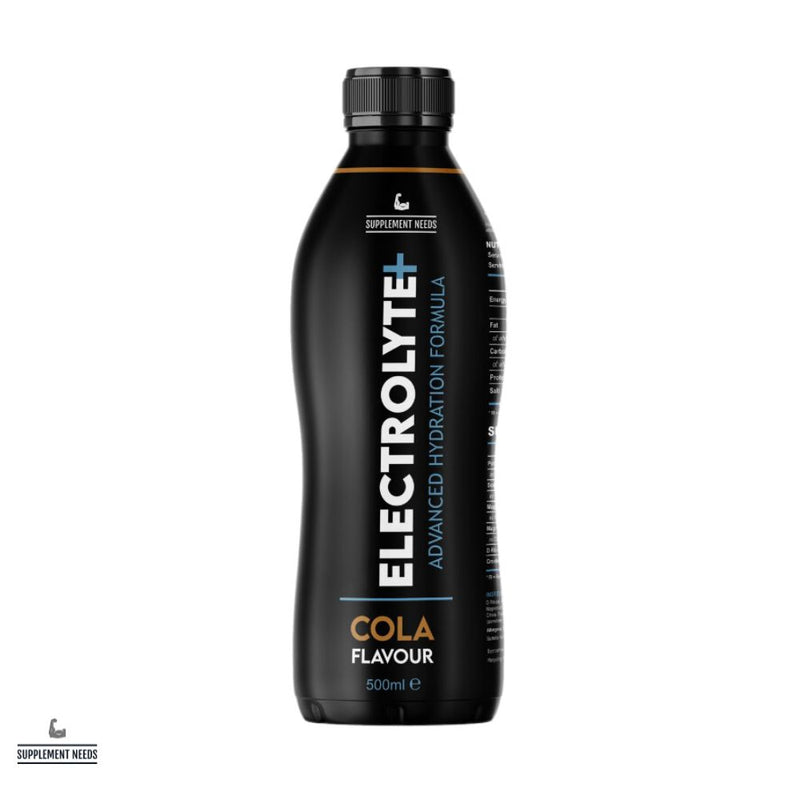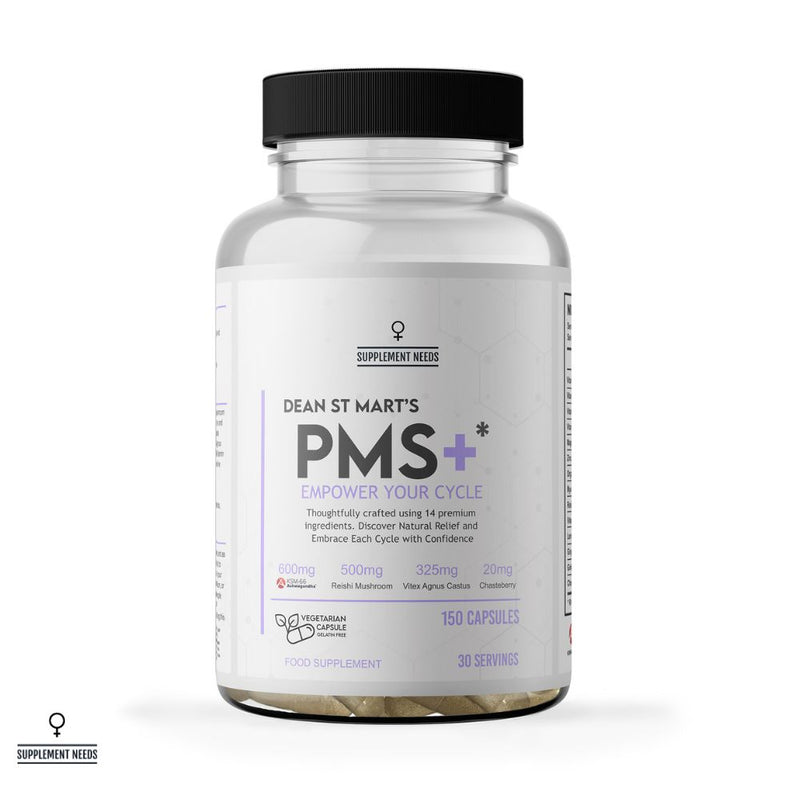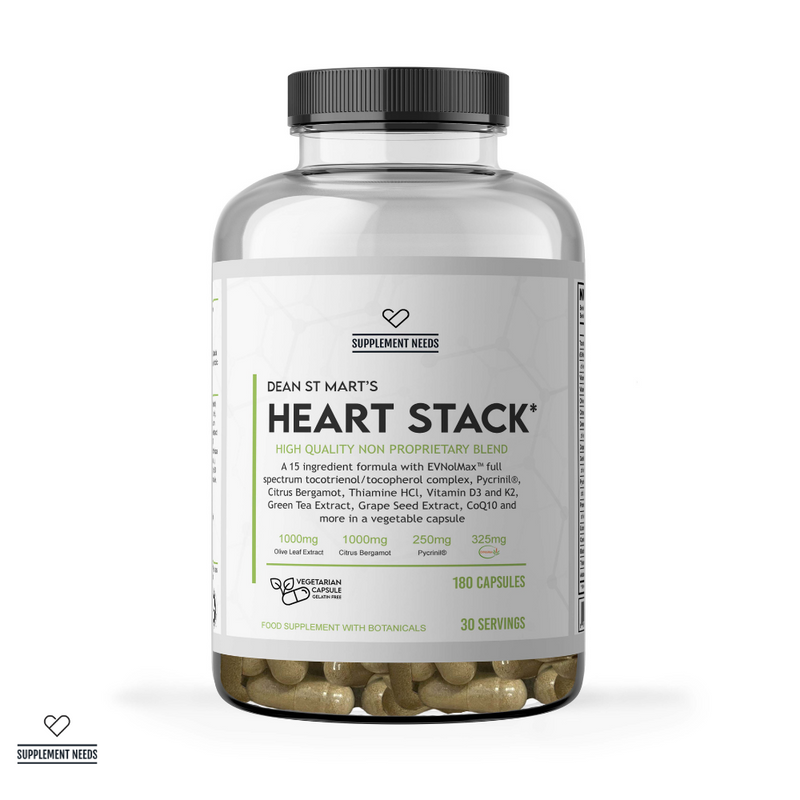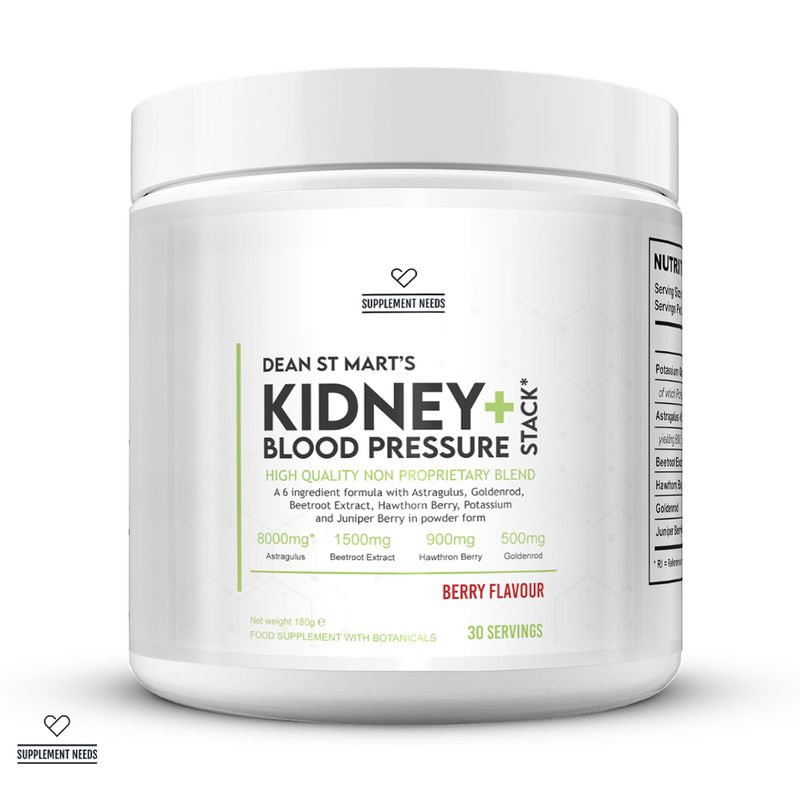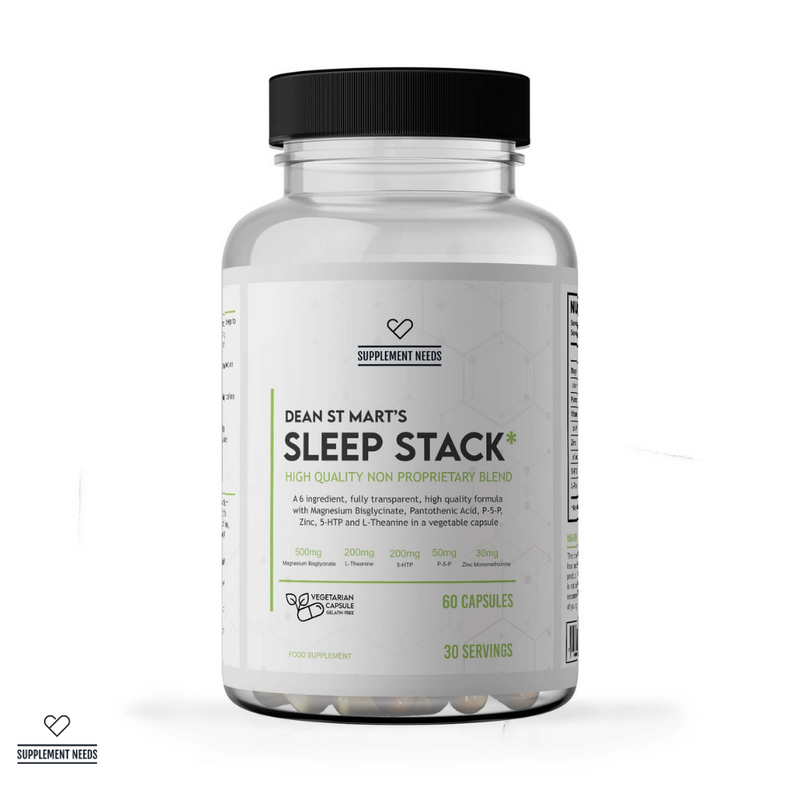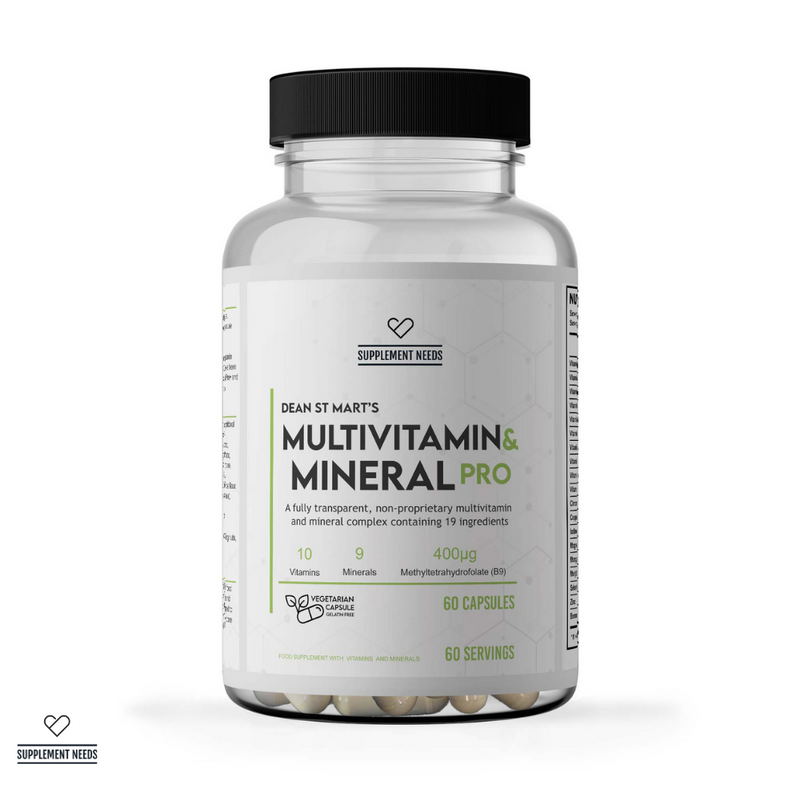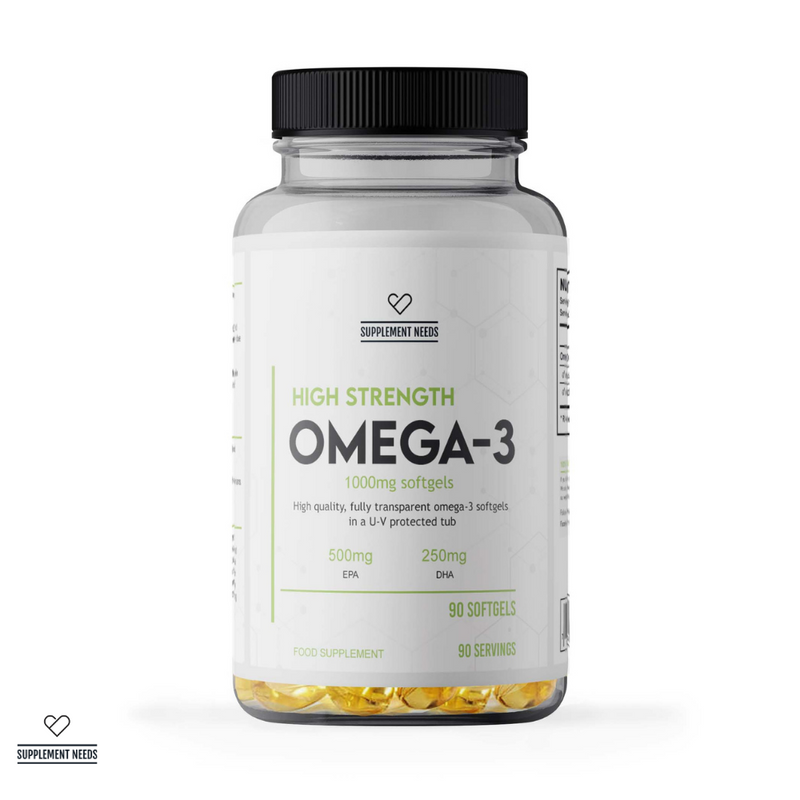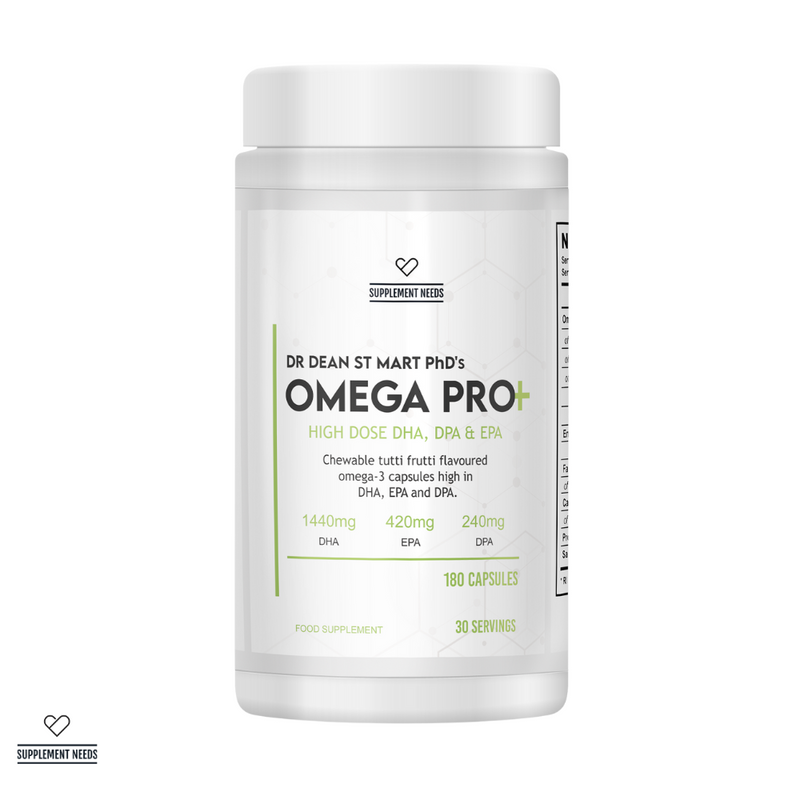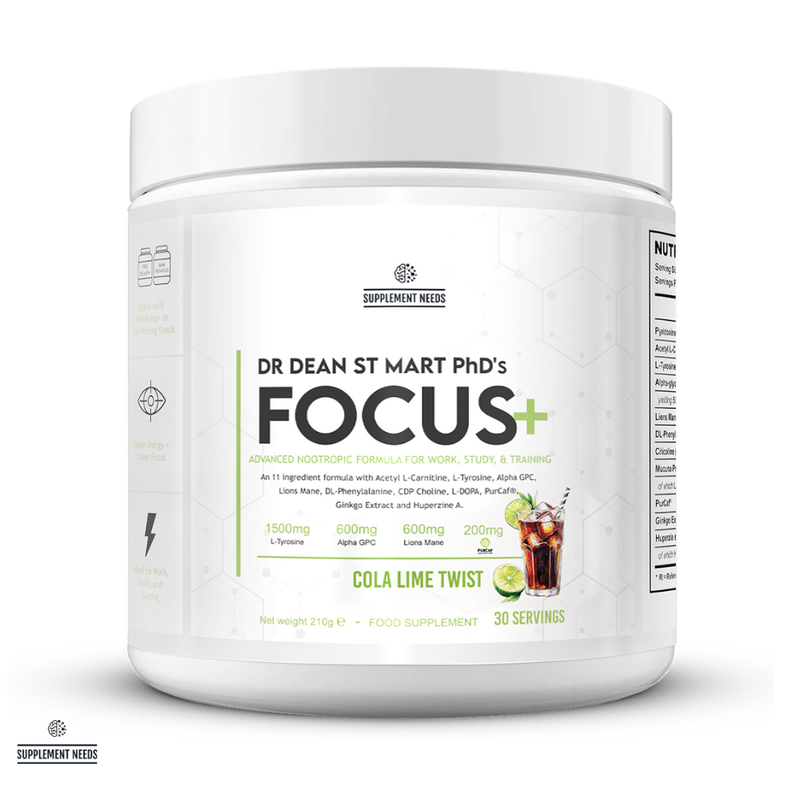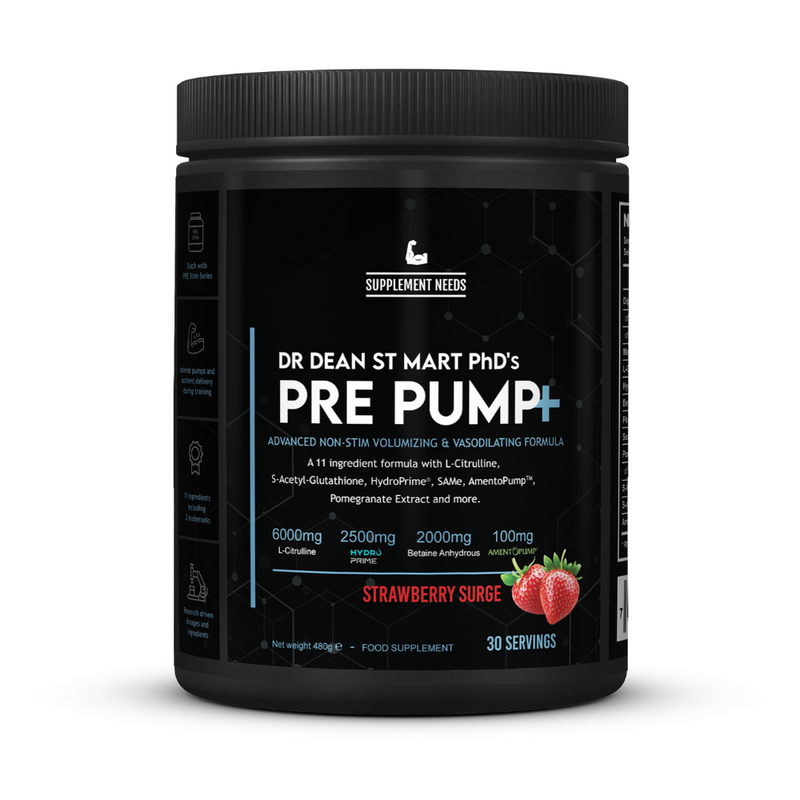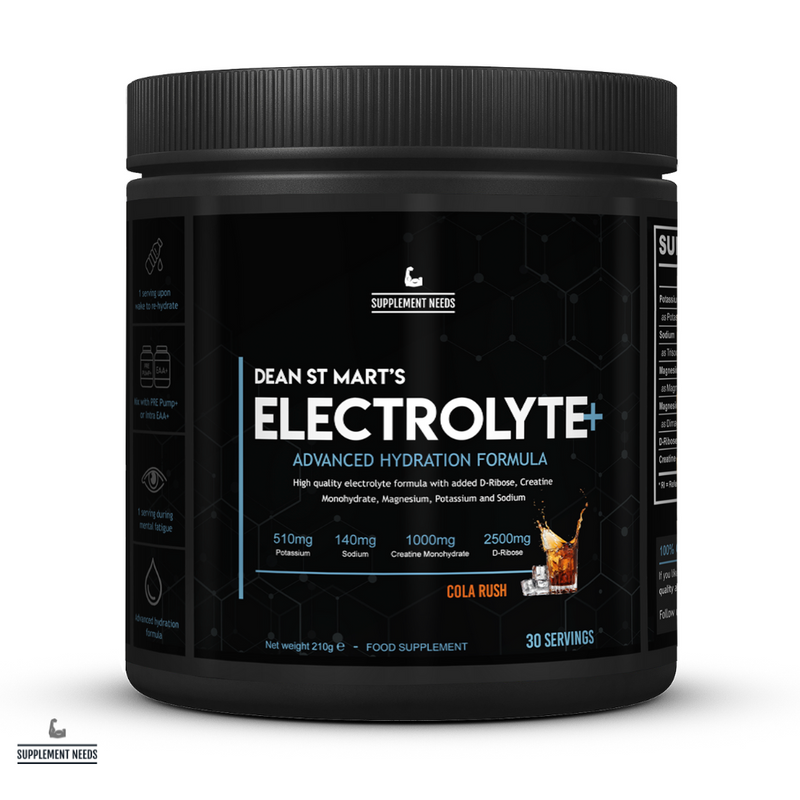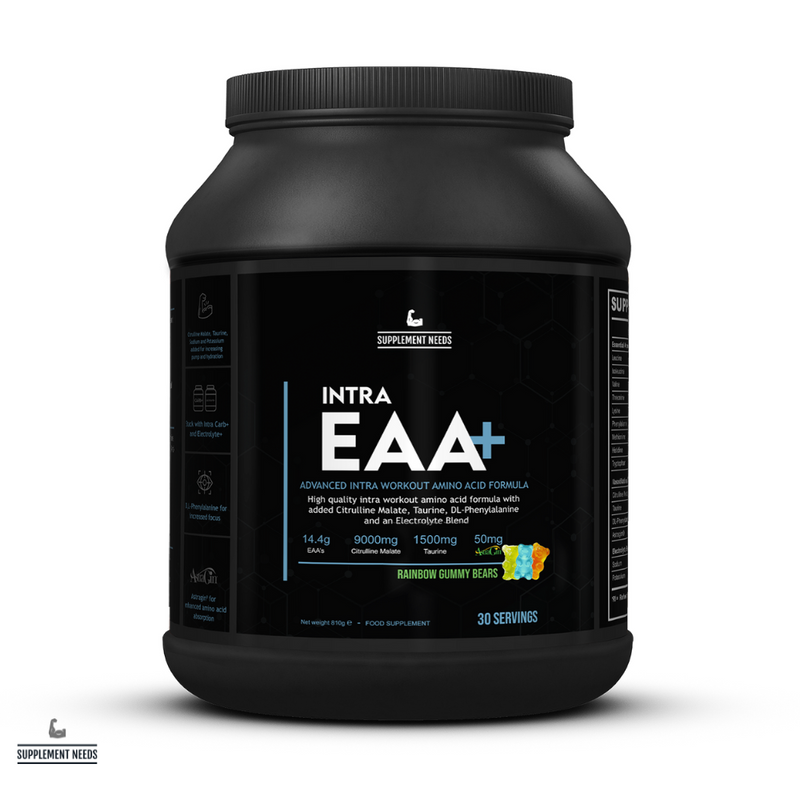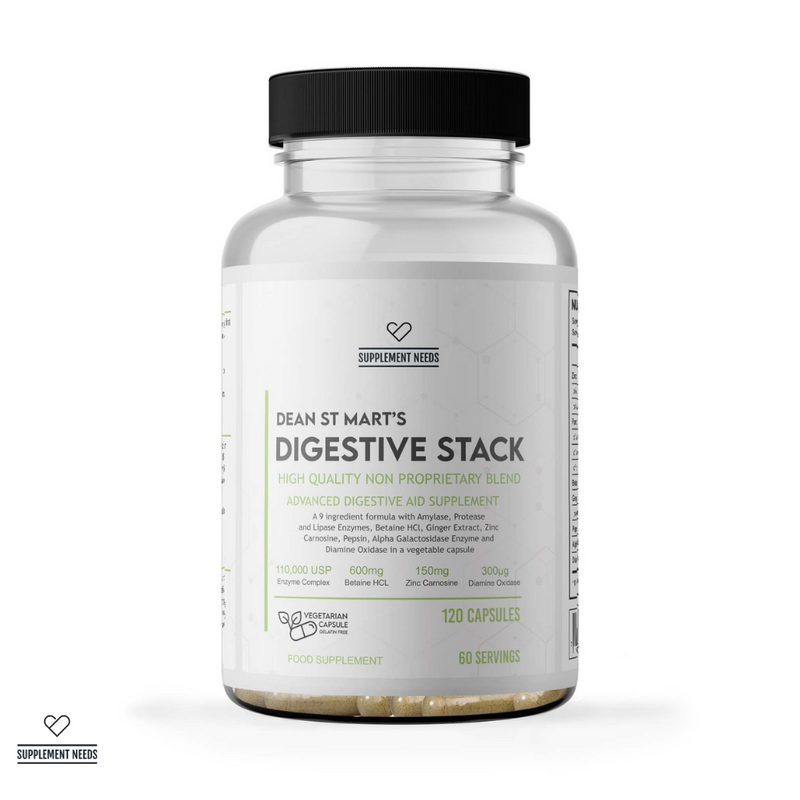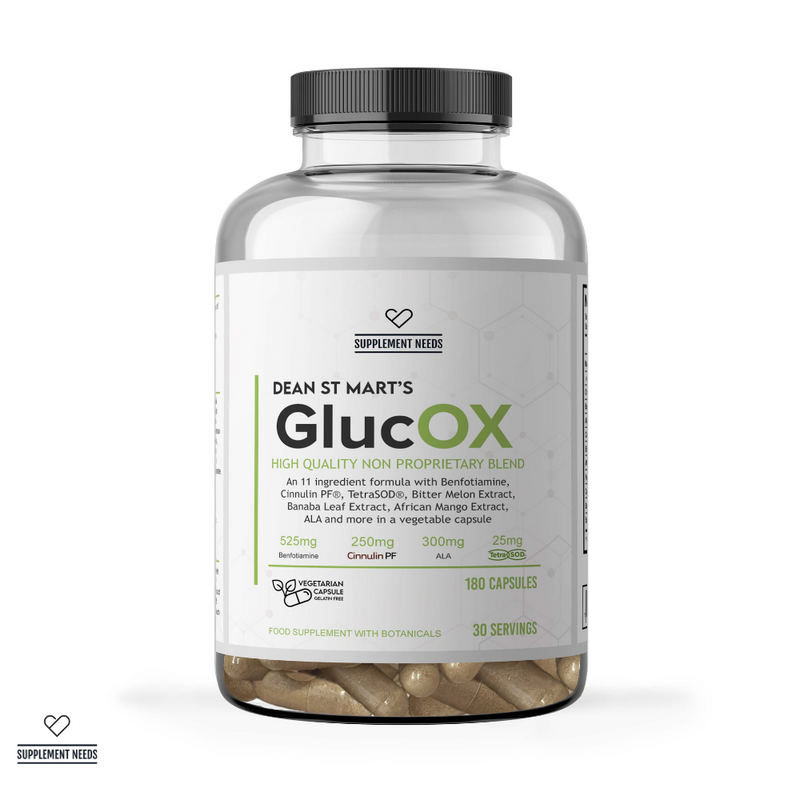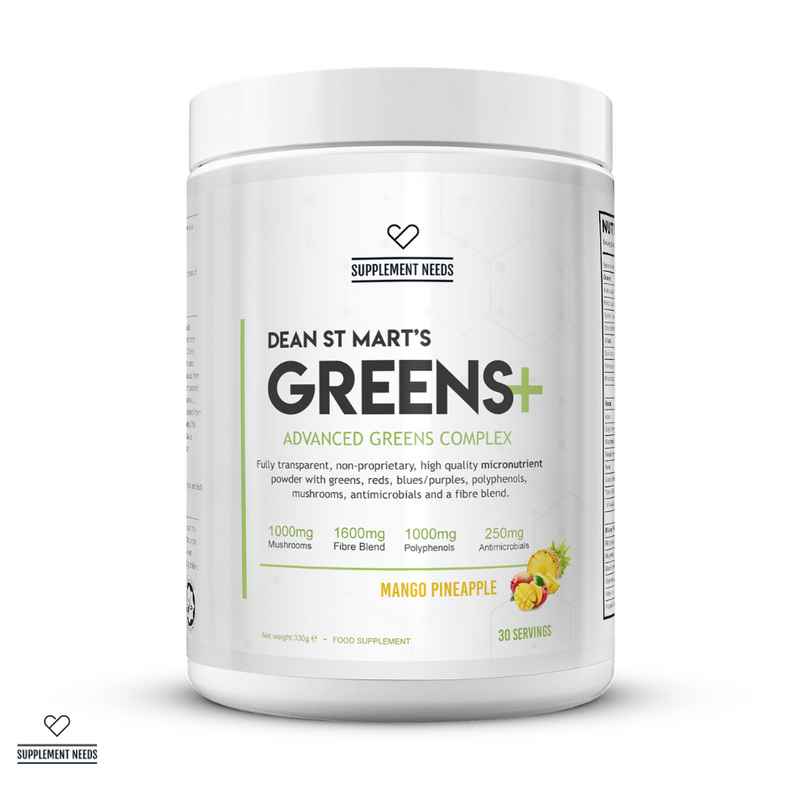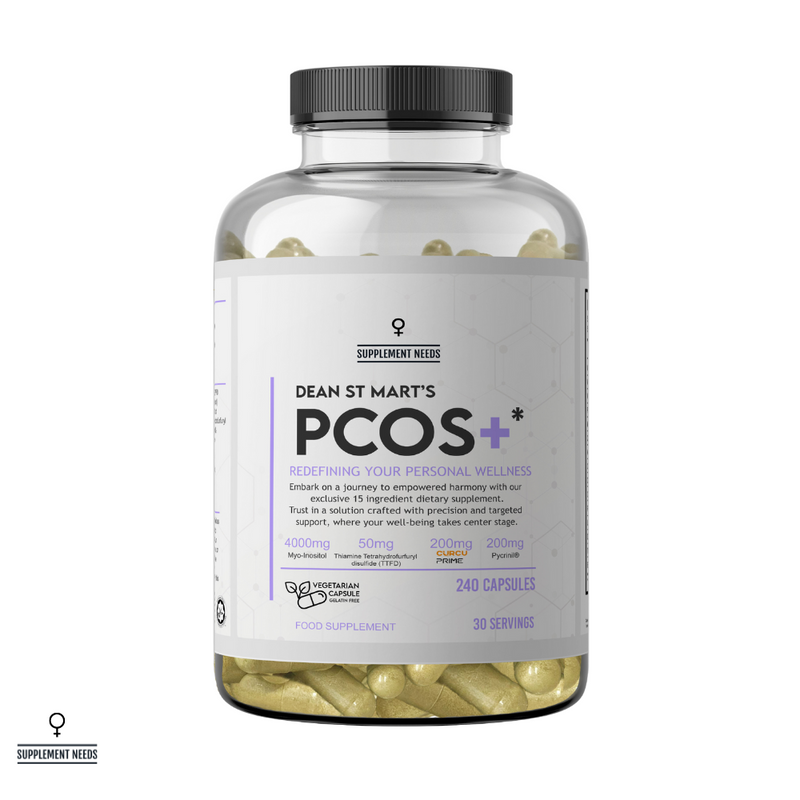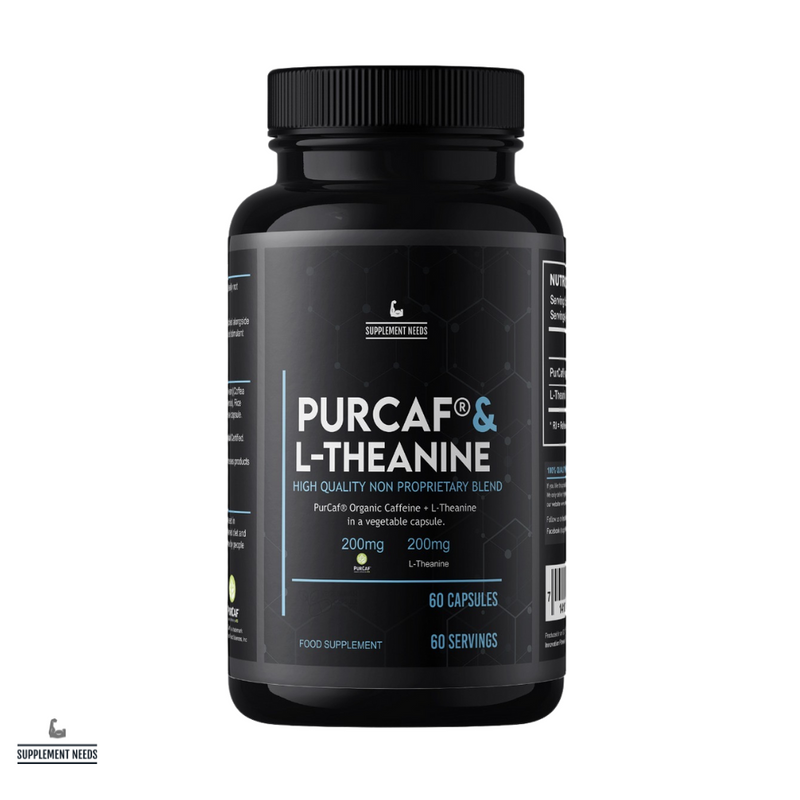If you’ve recently become pregnant, it’s likely you’ve had scores of people telling you that you should think about taking supplements. The question is, which supplements can have a beneficial effect on your pregnancy? The Supplement Needs team investigates…
What are pregnancy supplements?
Before we delve into the complex world of supplements and pregnancy, it’s important to first understand what exactly is meant by the term ‘pregnancy supplement’.
The answer? There actually isn’t a clear, agreed-upon definition as to what a pregnancy supplement is.
However, as you’ll see when you’re browsing online, there are hundreds (if not thousands) of supplements marketed as being designed to support pregnancy.
These ‘pregnancy supplements’ are in general a type of multivitamin - consisting of a mix of vitamins and minerals. You will find in some cases that they are further tailored to support pregnancy with the addition of ingredients that may have a beneficial effect on maternal wellness. Pregnancy (or prenatal supplements) will also sometimes have significantly higher doses of certain vitamins and minerals (compared to a ‘standard’ multivitamin) that are required during pregnancy.
However, as we’ll see, the exact composition of those supplements (and the dosage of their vitamins, minerals and other ingredients) can make a huge difference. This is because multivitamins (for pregnancy or otherwise) ‘have no standard or regulatory definition, such as what nutrients they must contain or in what amounts. Therefore, (they can) refer to products that have widely varying compositions’1.
Tip - our point here is that because there is no clear definition as to what a pregnancy supplement is, you should pay very close attention to the exact ingredients and composition of any supplements you buy.
Pregnancy and nutrition
So, why does pregnancy come with so much talk about supplements? The answer lies in the realm of nutrition.
Naturally, it’s important for everyone - pregnant or not - to maintain a healthy, balanced diet. But, once you become pregnant, your nutritional intake becomes of acute importance. As myriad studies have demonstrated, ‘nutritional requirements during pregnancy differ considerably from those of non-pregnant women’2.
In short - maintaining adequate nutrition during pregnancy is incredibly important.
But, “what does this mean in practice?” you may ask…
At the risk of oversimplifying things, your body’s nutritional needs can be grouped into two areas:
- Macronutrients.
- Micronutrients.
What are these? Let’s take a closer look, beginning with macronutrients.
What are macronutrients?
Macronutrients are the nutrients that we need in larger quantities in order to fuel our bodies, provide us with energy and maintain the metabolic processes that keep us well3.
Macronutrients include fats, carbohydrates and proteins.
Examples of fat containing foods include (but are not limited to):
- Whole eggs.
- Nuts.
- Fatty fish.
- Cheese.
Examples of foodstuffs that are rich in proteins include (but are not limited to):
- Meat.
- Milk.
- Fish.
- Eggs.
Examples of foods that contain carbohydrates include (but are not limited to):
- Brown rice.
- Wholegrain rice.
- Cereals.
As you can see, it should be possible to obtain all the macronutrients you need from a healthy, balanced diet.
However, please bear in mind that pregnancy does increase the need for macronutrients, especially during the second and third trimesters. To provide you with a tangible example of this, consider protein. During the second and third trimesters of pregnancy, protein needs increase an average of 21 g/day, resulting in an EAR (Estimated Average Requirement) of 0.88 g/kg bw/day. Assuming a standard body weight for women, these EARs are equivalent to a daily protein intake of 38 g in the first trimester and 59 g in the latter two trimesters4.
That’s a slightly long-winded way of saying that it’s essential that you supply your body with enough macronutrients during pregnancy - remembering that there’s a degree of truth in the old saying that ‘you’re eating for two!’
What are micronutrients?
Next, we come to micronutrients; these are vitamins and minerals. As we’ve written about in-depth in a recent guide, these micronutrients can be defined as follows:
-
Vitamins - vitamins are organic molecules that contribute to the proper functioning of your body. They can be divided into fat-soluble and water-soluble vitamins and can be obtained from foodstuffs such as plants and meats.
- Minerals - minerals are inorganic compounds that are sourced from rocks, soils and water. They, too, contribute to the proper functioning of your body.
Like macronutrients, your need for micronutrients will increase during pregnancy. However, as studies have indicated5, your need for micronutrients increases even more than your need for macronutrients.
In fact, deficiencies in certain micronutrients can have serious consequences for the health of your baby. For example, a deficiency in folate (Vitamin B9) can result in neural tube defects (e.g. spina bifida).
Are such micronutrient deficiencies particularly common? According to one study6, as many as 20 to 30% of women worldwide suffer from some vitamin deficiency. So, it’s important not to be complacent.
In short - it’s essential that you obtain sufficient micronutrients during pregnancy.
What supplements does the NHS recommend for pregnancy?
Quite naturally, here in the UK, when you fall pregnant, the first port of call for advice and support is the National Health Service (NHS).
So, what are the NHS’ views on supplementation during pregnancy?
At the time of writing (November 2023), the NHS recommends7 that pregnant women supplement their diet with:
- Folic acid.
- Vitamin D.
Folic acid and pregnancy
Folic acid - also known as Vitamin B9 - helps your body with DNA replication and contributes towards a range of enzymatic reactions involved in amino acid synthesis and vitamin metabolism. With regard to pregnancy, folic acid is required in greater amounts by your body as it plays a key role in the growth and development of the foetus8.
One of the driving reasons for the recommendation of folic acid supplementation is that a deficiency in folic acid can result in birth defects. This isn’t a recent development, either.
Folic acid deficiency was identified as a cause for concern over thirty years ago when a series of clinical trials confirmed that ‘getting too little folate increased a woman’s chances of having a baby with spina bifida or anencephaly and that getting enough folate could reduce the incidence of these birth defects’9.
To put it more simply - getting enough folic acid in your diet during pregnancy is super important!
The NHS recommends10 that you should take 400 micrograms (mcg) of folic acid every day until the end of your first trimester (12 weeks).
Note - when it comes to supplementing your diet with folate, it’s vital that you choose the best form. You see, whilst folate and folic acid are often used interchangeably, they’re actually subtly different. Folate refers to the naturally-occuring form of Vitamin B9, whilst folic acid refers to the synthetic form of Vitamin B9. It’s folate that you want to supplement your diet with. Why? Because this is the much more absorbable form of Vitamin B9. You will often see folate listed as its full chemical name e.g. L-5-Methyltetrahydrofolate.
Vitamin D and pregnancy
The NHS also recommends that pregnant women supplement their diet with additional Vitamin D11.
As with folic acid, the main concern with regard to Vitamin D is that a deficiency of this vitamin can lead to a range of negative health outcomes for mother and baby alike. Studies12 have pointed out that Vitamin D deficiency is linked to preeclampsia, low birth weight, neonatal hypocalcaemia (not having enough calcium in the bloodstream), poor postnatal growth, and bone fragility.
Furthermore, Vitamin D deficiency can be surprisingly common in pregnant women. Studies13 suggest that 31% of pregnant women in the UK have a Vitamin D deficiency.
It’s for these reasons that the NHS recommends that pregnant women take 10 micrograms (mcg) of Vitamin D each day. The NHS especially recommends the supplementation of Vitamin D between the months of September and March14 (this is because Vitamin D can be produced by the body, but only with sufficient exposure to natural sunlight).
What other supplements can pregnant women take?
Whilst the NHS recommends the supplementation of folic acid and Vitamin D, some women choose to add further supplements to their diets during pregnancy. In fact, some academics15 are pushing in a similar direction, suggesting that supplementation during pregnancy shouldn’t necessarily be limited to only folic acid and Vitamin D.
This is evidenced by the fact that an increasing number of companies are developing multivitamin supplements that include not only folic acid and Vitamin D, but other vitamins, minerals and ingredients that have been shown to contribute to maternal wellness.
Pregnancy supplements: what Supplement Needs recommends
Here at Supplement Needs, we’ve recognised that many of the ‘pregnancy supplements’ on the market don’t stand up to scrutiny. They use cheap, generic ingredients. They’re not especially absorbable by the body. They’re not really tailored to specific female health needs. The list goes on…
Which is why we’ve developed a range of supplementations that are tailored to the exact needs of women to support maternal health. Below, you’ll find a selection of our most popular and recommended products.
Supplement Needs Female Fertility+

Supplement Needs Female Fertility+
Designed and formulated by Dr. Dean St Mart PhD in collaboration with women’s health pioneer Olivia Orchowski, Supplement Needs’ Female Fertility+ is an outstanding multivitamin supplement designed specifically for women.
Fertility+ has an ingredient profile that includes the essential water-soluble vitamins; B1, B2, B3, B5, B6, B7, B9, B12, and Vitamin C. It also contains the essential fat-soluble vitamins; A, D, E, K.
As we’ve written previously, each of these vitamins can contribute to the underlying metabolic processes of your body - boosting your overall health and wellbeing.
But, that’s not all. Supplement Needs Female Fertility+ also contains a carefully curated blend of minerals. These include Boron, Copper, Chromium, Iodine, Manganese, Magnesium, Molybdenum, Selenium, and Zinc.
As a plethora of studies have suggested16, the proper concentration of minerals in the body is especially important during pregnancy. Yet, all too often, many pregnancy supplements will only include a handful of minerals - seemingly added as an afterthought.
Finally, where Fertility+ really stands out is in the additional ingredients it includes. These ingredients are Cholate (a salt of cholic acid), Royal Jelly (a type of honey bee secretion), Curcumin (a natural compound that has anti-inflammatory properties), N-Acetyl Cysteine (a potent antioxidant), and CoQ10 (another powerful antioxidant).
It’s this last set of ingredients that truly make Fertility+ stand out from the rest of the ‘pregnancy’ and ‘fertility’ supplements on the market.
Supplement Needs Magnesium Bisglycinate

Supplement Needs Magnesium Bisglycinate
Another supplement that can have a potentially beneficial impact during pregnancy is Magnesium Bisglycinate.
As a wealth of studies17 have suggested, Magnesium plays an incredibly important role in pregnancy - given that it plays a fundamental role in over 600 enzymatic reactions. These reactions include energy metabolism, synthesis of fatty acids and proteins and the transmission of nerve impulses, amongst others.
Trust us when we say that Magnesium is IMPORTANT.
Furthermore, pregnant women can be at higher risk of developing magnesium deficiency, with maternal, foetal, and paediatric consequences. In fact, Magnesium deficiency during the gestation period may interfere with foetal growth and development and ‘favour premature labour’18.
It’s for these reasons that some women choose to supplement their diet with additional Magnesium during pregnancy.
At this point, however, you may be wondering what exactly Magnesium Bisglycinate is.
Without going into too much detail, Magnesium Bisglycinate is a more ‘bioavailable’ form of Magnesium - meaning, basically, that it’s easier for your body to absorb.
It’s more easily absorbable because the Magnesium (which is an inorganic compound), is bonded with the amino acid glycine (an organic molecule) - making it easier for the Magnesium to pass through your intestines into your body.
That’s why at Supplement Needs our Magnesium supplement takes the form of Magnesium Bisglycinate - offering you maximum value for money. Whilst it may be tempting to go for a cheaper Magnesium supplement that consists of Magnesium Oxide, this truly is a false economy (your digestive system won’t absorb this type of Magnesium well).
It’s also worth noting that Glycine (the amino acid with which Magnesium is bonded in Magnesium Bisglycinate) has been shown in studies19 to have calming and sleep promoting effects.
Supplement Needs Omega Femme

A third form of supplementation that may have a beneficial impact upon maternal wellness is the addition of extra Omega fatty acids to the diet.
Omega fatty acids help form the membranes of your body’s cells - they provide structure to the cells and help with interactions. As such, they are important in the overall functioning of your body.
When it comes to pregnancy it is likely that requirements for Omega fatty acids (Omega-3 in particular) increase over normal to support foetal growth, particularly of the brain and eyes20. It is also suggested that Omega-3 fatty acids may also play a role in determining the length of gestation and in preventing perinatal depression21.
What’s more, a global survey found that the UK population was amongst the worst in the world for Omega-3 intake22. Other studies have found that ‘most pregnant women likely do not get enough Omega-3 fatty acids because the major dietary source, seafood, is restricted to 2 servings a week’23.
Because of these reasons (and more), some women choose to add extra Omega fatty acids to their diet during pregnancy.
Here at Supplement Needs, we’ve developed Omega Femme to provide an efficacious blend of essential unsaturated fatty acids. At the core of Omega Femme is Omegia® Powder, which is a standardised source of Omega-3, Omega-6, Omega 7, and Omega-9, derived from sea buckthorn fruit and seed oil.
Supplement Needs Omega PRO+

Another popular Supplement Needs Omega supplement is our Omega PRO+.
Taking the form of chewable, tutti-fruity flavoured capsules, Omega PRO+ has been designed and formulated by Dr. Dean St Mart PhD to be an easy, convenient (and enjoyable!) way of supplementing your diet with those all-important essential fatty acids.
Where Supplement Needs Omega PRO+ really stands out from other Omega supplements on the market is its composition.
Read the nutritional labels of many Omega supplements and you’ll see that they contain ALA (Alpha-Linolenic Acid). This is an Omega-3 fatty acid.
However, in order to be fully useful, your body must convert this ALA into EPA (Eicosapentaenoic Acid), DHA (Docosahexaenoic Acid), and DPA (Docosapentaenoic Acid) respectively. But, this conversion process isn’t especially efficient.
Supplement Needs Omega PRO+ essentially ‘skips’ this by providing the EPA, DPA and DHA directly within the supplement.
What’s even more of a unique selling point regarding Omega PRO+ is the nature of the DPA it contains. Firstly, you struggle to find many Omega supplements that contain DPA at all! Why? Because it’s traditionally been very difficult to obtain DPA from fish oil constituents. Modern methods of distillation of Omega oils can inadvertently destroy lipids such as DPA.
Put another way, we have to go to great lengths in order to distil fish oil in order to preserve the DPA fraction. As part of this, we only use fish oil where the fish has been processed as soon as it’s been caught. This ensures that the TOTOX (Total Oxidation Value) extremely low. The result is what we’d consider to be an ‘elite’ Omega supplement that contains 240 mg of DPA.
Studies24 have suggested that DPA can play several important roles in human health, including resolution of inflammation.
Looking for female-specific supplements?
Then you’re in the right place! The female body has unique and specific needs, meaning cheap, generic, supermarket supplements just won’t do the job.
That’s why here at Supplement Needs we have developed, formulated and produced our Female Needs range.
The Female Needs range has been meticulously crafted by Dr. Dean St Mart PhD to provide the perfect balance of science and dedicated research that is uniquely tailored to support and nourish female health.
Shop the Female Needs range now
Disclaimer
The information on this website should not be used as a substitute for professional medical advice or care. If you have questions about your health, please contact your doctor.
References
1. Yetley E. Multivitamin and multimineral dietary supplements: definitions, characterisation, bioavailability, and drug interactions [online]. Available at: https://pubmed.ncbi.nlm.nih.gov/17209208/ (Accessed on 23rd November 2023).
2. Ahmed F. Nutritional Requirements during Pregnancy and Lactation [online]. Available at: https://www.ncbi.nlm.nih.gov/pmc/articles/PMC7926714/ (Accessed on 23rd November 2023).
3. Carreiro A, Dhillon J, Gordon S, Jacobs A, Higgins K, McArthur B, Redan B, Rivera R, Schmidt L, Mattes R. The macronutrients, appetite and energy intake [online]. Available at: https://www.ncbi.nlm.nih.gov/pmc/articles/PMC4960974/ (Accessed on 23rd November 2023).
4. Murphy M, Higgins K, Bi X, Barraj L. Adequacy and Sources of Protein Intake among Pregnant Women in the United States, NHANES 2003-2012 [online]. Available at: https://www.ncbi.nlm.nih.gov/pmc/articles/PMC7997328/# (Accessed on 23rd November 2023).
5. Gernand A, Schulze K, Stewart C, West, Jr K, Christian P. Micronutrient deficiencies in pregnancy worldwide: health effects and prevention [online]. Available at: https://www.ncbi.nlm.nih.gov/pmc/articles/PMC4927329/ (Accessed on 23rd November 2023).
6. Baker H, DeAngelis B, Holland B, Gittens-Williams L, Barrett Jr T. Vitamin profile of 563 gravidas during trimesters of pregnancy [online]. Available at: https://pubmed.ncbi.nlm.nih.gov/11838885/ (Accessed on 23rd November 2023).
7. NHS. Vitamins, supplements and nutrition in pregnancy [online]. Available at: https://www.nhs.uk/pregnancy/keeping-well/vitamins-supplements-and-nutrition/ (Accessed on 23rd November 2023).
8. Greenberg J, Bell S, Guan Y, Yu Y. Folic Acid Supplementation and Pregnancy: More Than Just Neural Tube Defect Prevention [online]. Available at: https://www.ncbi.nlm.nih.gov/pmc/articles/PMC3218540/ (Accessed on 23rd November 2023).
9. Czeizel A, Dudás I. Prevention of the First Occurrence of Neural-Tube Defects by Periconceptional Vitamin Supplementation [online]. Available at: https://www.nejm.org/doi/full/10.1056/nejm199212243272602 (Accessed on 23rd November 2023).
10. NHS. Start for Life: Vitamins and supplements in pregnancy [online]. Available at: https://www.nhs.uk/start-for-life/pregnancy/vitamins-and-supplements-in-pregnancy/ (Accessed on 23rd November 2023).
11. NHS. Vitamins, supplements and nutrition in pregnancy [online]. Available at: https://www.nhs.uk/pregnancy/keeping-well/vitamins-supplements-and-nutrition/ (Accessed on 23rd November 2023).
12. Mulligan M, Felton S, Riek A, Bernal-Mizrachi C. Implications of vitamin D deficiency in pregnancy and lactation [online]. Available at: https://www.ncbi.nlm.nih.gov/pmc/articles/PMC3540805/ (Accessed on 23rd November 2023).
13. Yamanouchi L, Srinivasan M, Barlow N, Basu A. Level of adherence to vitamin D supplementation guidelines in an antenatal centre in Birmingham UK, and its effect on biochemical and obstetrical outcomes: a single-centre cross-sectional study [online]. Available at: https://www.ncbi.nlm.nih.gov/pmc/articles/PMC8444259/# (Accessed on 23rd November 2023).
14. NHS. Vitamins, supplements and nutrition in pregnancy [online]. Available at: https://www.nhs.uk/pregnancy/keeping-well/vitamins-supplements-and-nutrition/ (Accessed on 23rd November 2023).
15. Gopal M, Sunitha K, Arockiasamy J, Sibqathulla M, Yuvaraj J, Kalyanaraman S. Micronutrient Deficiency in Pregnancy: Time to Think Beyond Iron and Folic Acid Supplementation [online]. Available at: https://www.ncbi.nlm.nih.gov/pmc/articles/PMC9693934/ (Accessed on 23rd November 2023).
16. Farias P, Marcelino G, Santana L, Almeida E, Guimarães R, Pott A, Hiane P, Freitas K. Minerals in Pregnancy and Their Impact on Child Growth and Development [online]. Available at: https://www.ncbi.nlm.nih.gov/pmc/articles/PMC7730771/ (Accessed on 23rd November 2023).
17. Fanni D, Gerosa C, Nurchi V, Manchia M, Saba L, Coghe F, Crisponi G, Gibo Y, Eyken P, Fanos V, Faa G. The Role of Magnesium in Pregnancy and in Foetal Programming of Adult Diseases [online]. Available at: https://www.ncbi.nlm.nih.gov/pmc/articles/PMC8360883/ (Accessed on 24th November 2023).
18. Fanni D, Gerosa C, Nurchi V, Manchia M, Saba L, Coghe F, Crisponi G, Gibo Y, Eyken P, Fanos V, Faa G. The Role of Magnesium in Pregnancy and in Foetal Programming of Adult Diseases [online]. Available at: https://www.ncbi.nlm.nih.gov/pmc/articles/PMC8360883/ (Accessed on 24th November 2023).
19. Kawai N, Sakai N, Okuro M (et al). The Sleep-Promoting and Hypothermic Effects of Glycine are Mediated by NMDA Receptors in the Suprachiasmatic Nucleus [online]. Available at: https://www.ncbi.nlm.nih.gov/pmc/articles/PMC4397399/ (Accessed on 27th November 2023).
20. Coletta J, Bell S, Roman A. Omega-3 Fatty Acids and Pregnancy [online]. Available at: https://www.ncbi.nlm.nih.gov/pmc/articles/PMC3046737/# (Accessed on 24th November 2023).
21. Coletta J, Bell S, Roman A. Omega-3 Fatty Acids and Pregnancy [online]. Available at: https://www.ncbi.nlm.nih.gov/pmc/articles/PMC3046737/# (Accessed on 24th November 2023).
22. Stark K, Elswyk M, Higgins M, Weatherford C, Salem Jr N. Global survey of the omega-3 fatty acids, docosahexaenoic acid and eicosapentaenoic acid in the bloodstream of healthy adults [online]. Available at: https://www.sciencedirect.com/science/article/pii/S0163782715300333 (Accessed on 24th November 2023).
23. Greenberg J, Bell S, Ausdal W. Omega-3 Fatty Acid Supplementation During Pregnancy [online]. Available at: https://www.ncbi.nlm.nih.gov/pmc/articles/PMC2621042/ (Accessed on 24th November 2023).
24. Garcia-Moreno P, Jacobsen C, Yesiltas B (ed.). Omega-3 Delivery Systems: Production, Physical Characterisation and Oxidative Stability. Published: Academic Press (2021).
